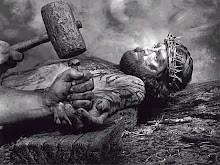There are 149 Psalms in the Bible and each and every one is special, but some just seem to stand out in our minds. Psalm 8 is one of the greats. It begins and ends with the same statement.
“O Lord our Lord, how excellent is thy name in all
the earth!”
Praise to God is the place we should begin all
things. When we awaken in the morning we should praise God for He has given us
another day. When we get to work we should praise God for He has provided us
our jobs. When we eat, we should praise God for He is our provider. When we
gather in our churches on Sunday morning we should praise God for He has saved
us. Even when we face trials such as illness or financial loss we should praise
God for through our troubles He will transform us into the likeness of Jesus.
Praise to God is where we should end all things. We
should praise Him at night for He has gotten us through another day. We should
end our church service with praise for He has blessed us with His presence.
When we are healed from sickness or we rise above a trial we should praise Him
for He is the great physician of both physical and emotional infirmity.
Psalm 8:2 “Out of the mouth of babes and sucklings hast thou ordained strength because of thine enemies, that thou mightest still the enemy and the avenger.”
Praise God for He and He alone is our savior.
Psalm 8:3-4 “When I consider thy heavens, the work of thy fingers, the moon and the stars, which thou hast ordained; What is man, that thou art mindful of him? and the son of man, that thou visitest him?”
God created the heavens with only the use of His fingers.
Imagine what He can do if He were to use the full strength of His arms?
Psalm 8:4 “What is man, that thou art mindful of him? and the son of man, that thou visitest him?”
What is man? Why are we here?
Psalm 8:5-8 “For thou hast made him a little lower than the angels, and hast crowned him with glory and honour. Thou madest him to have dominion over the works of thy hands; thou hast put all things under his feet: All sheep and oxen, yea, and the beasts of the field; The fowl of the air, and the fish of the sea, and whatsoever passeth through the paths of the seas.”
God created us and put us in charge of the entire earth. For
now we are like middle men…lower than the angels in the heavens but higher than
the animals of the earth. He has crowned us with glory and honor. One day when
Jesus comes back we shall judge the angels. Until then we should be displaying
the Glory of God through our lives and our love for our fellow man.
We should be praising God; every moment until He returns.
“O Lord our Lord, how excellent is thy name in all
the earth!”
